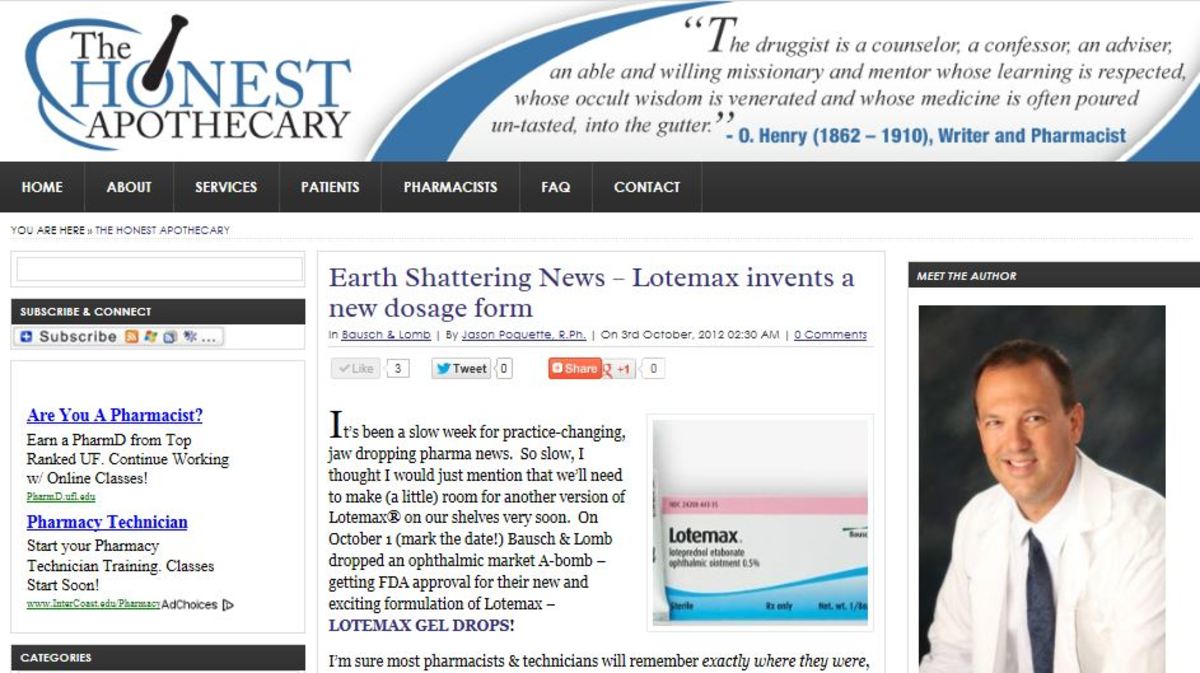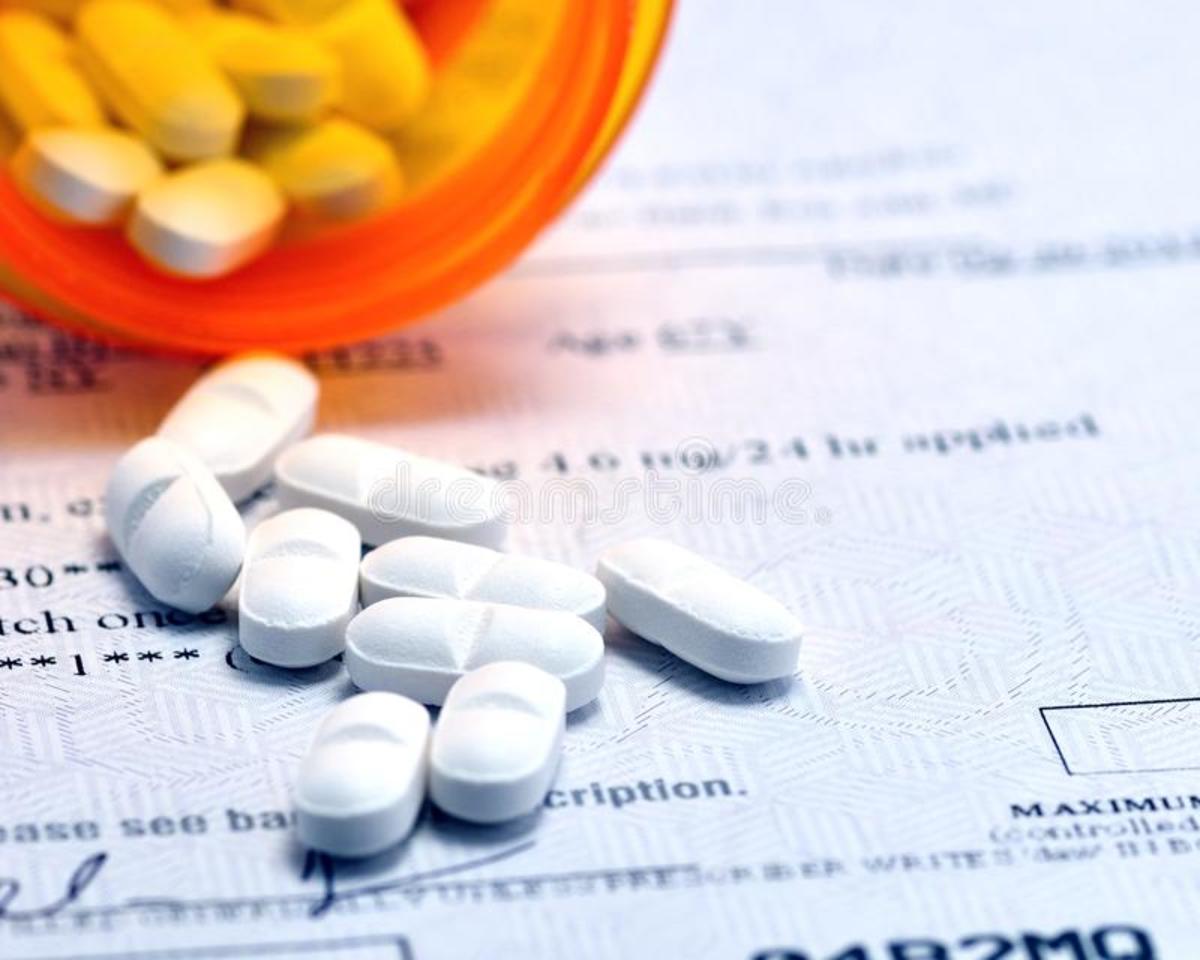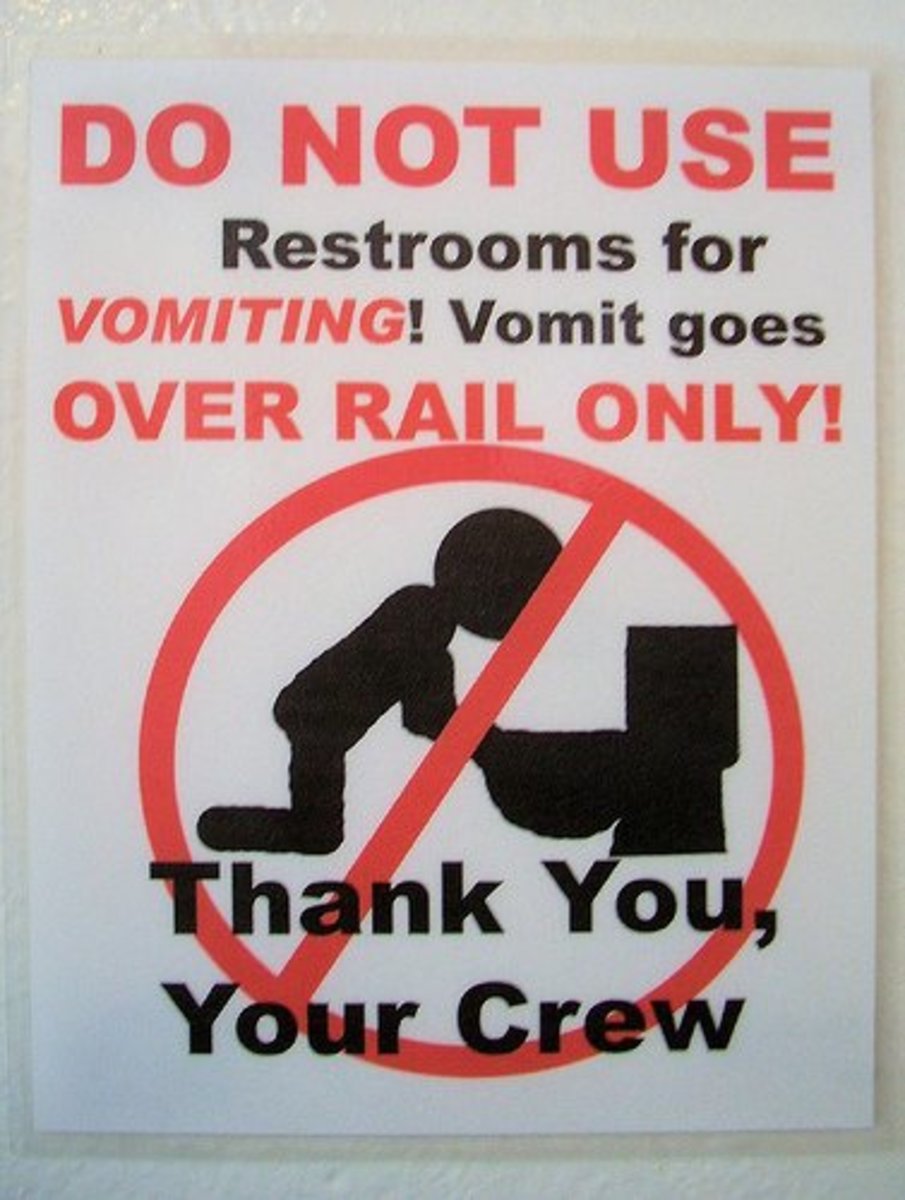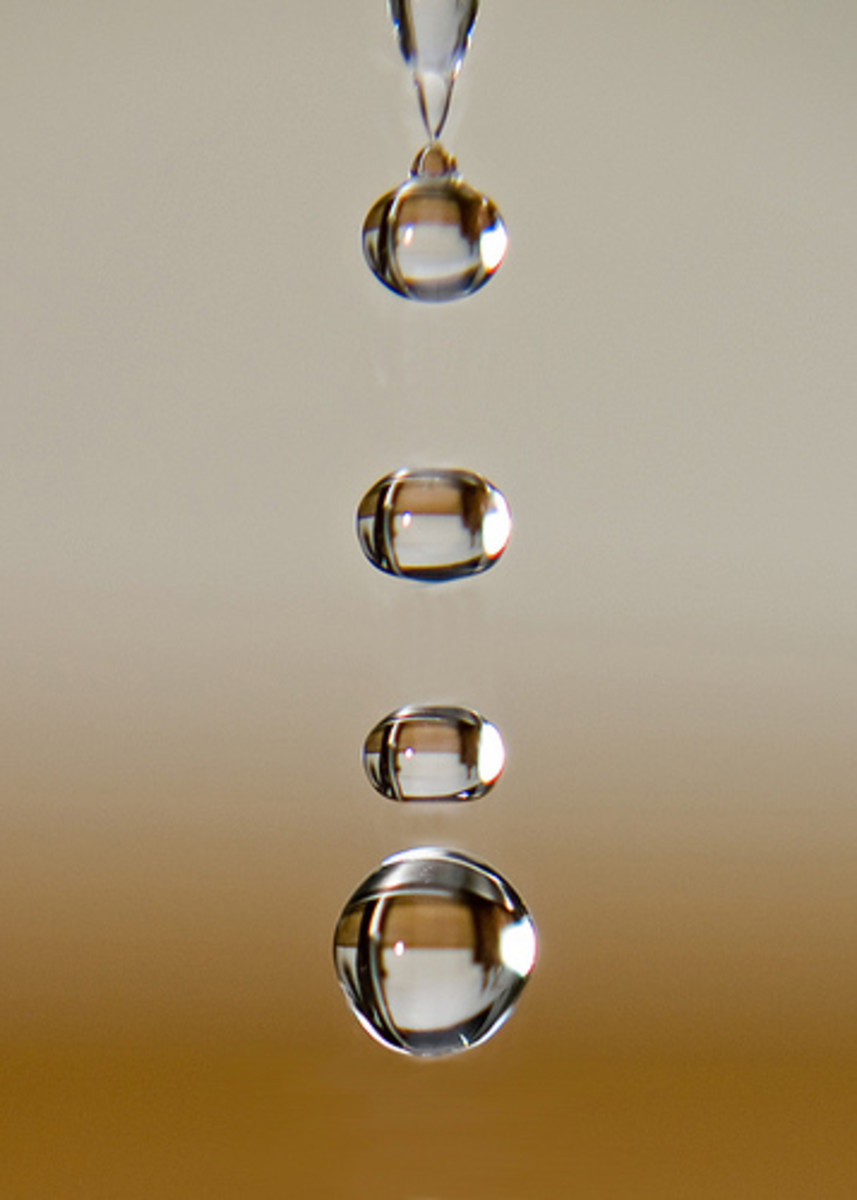How to Recognize an Addiction to Prescription Pill Medication

Prescription drug abuse and addiction are skyrocketing. The Centers for Disease Control now calls it an epidemic, and it's one that affects both teens and adults. In The Types of Drugs Teenagers Use, I highlighted the latest drug trends among teens. Here, you'll find specific details about spotting drug addiction in your child or other adults.
Identifying an addiction to prescription medications can prove especially challenging. It's a bit like looking at this image (at right). What do you see? An old woman, or a young one? Look again, and find the other woman. Once you know what you're looking at, you'll spot both profiles easily whenever you're faced with a similar image. The same is true of learning to recognize addictions.
Keep reading to discover signs and symptoms of prescription drug abuse and addiction - whether you're asking about your own use or concerned about someone else's.
I'm Not an Addict! Am I?
When I worked as a drug and alcohol counselor in the U.S. Army, I reminded my patients that if they were trying to figure out if they had an addiction, then they probably already knew the answer. If you're on this page because you're wondering about your own drug use, then you probably already know that you're not using the way "normal" people do.
You've probably discovered that these days, your drug use is different than it used to be. You have found that it takes more of the drug to produce the same effect. You may have had arguments with loved ones because of your use.
If you've used even when you don't really want to, taken a larger amount than you intended, if you've been arrested or had trouble on the job because of pills, and still continue to use, you have lost control over your use. If you feel defensive when others express concern, or use dishonesty with people to hide the truth or get more drugs, you're protecting an addiction. If you take drugs to handle the drugs you've taken (like avoiding withdrawal symptoms) then you're way past normal use.
If even ONE of these statements has been true for you, then you probably have an addiction. You no longer have control over your use - it now controls you. The Diagnostic and Statistical Manual's (DSM-IV) clinical criteria for a chemical dependence outlines certain traits as being characteristic of an addiction.: increased tolerance, use over a longer period of time or in greater quantities than originally intended, investing time in planning to use, using, or recovering from use, impairment in social, occupational, or recreational activities, continued use despite it causing problems, and inability to cut back or stop using are the basic seven traits of addiction. If three or more exist for a person, they meet the standards for chemical dependency.
Addiction is an illness, and it can be treated. Don't feel bad if you haven't been able to stop using, but do ask professionals for help. Like diabetes, addiction is partly influenced by our genetic makeup, but without treatment, it can kill us. If your family member was diagnosed with diabetes, would you feel hurt and angry if they avoided learning about and treating it? Please do your loved ones a favor and take care of yourself.
If you're still not sure, take the quiz below. If you score more between 0-6 points, you're abusing prescription drugs but may not have slipped into addiction. If you score more than six points, your body has developed a physical dependence on drugs.
Evaluate Your Use
view quiz statisticsAm I Missing Something? Signs of Others' Addictions
If you're worried about someone else's use of prescription medications, you may have noticed some of the signs already mentioned. They may take more than they used to in order to get the same effect. They may minimize or deny their use. And they may spend a lot of time thinking about using, using, or recovering for their use.
There are some additional signs that aren't described in diagnostic manuals that you should be alert for if you're suspicious:
- Frequently missing small amounts of money.
- Checks that aren't accounted for or that have been torn from the middle of the checkbook.
- Frequent, vague illnesses that either provide an excuse to use or provide a reason to go see a doctor to get more pills.
- Unusual mood changes that happen when the person is using, and opposite from when they're in withdrawal. Stimulants like Ritalin, Adderall, and Concerta produce more energy and focus when the user is high, but withdrawal produces depression and lethargy. The opposite is true for sedatives. (More details about drug effects will be covered separately.)
- Pills or vials of prescription medication may go missing from bathroom cabinets.
- Users may use the bathroom frequently even as a guest in others' homes so they can search and take prescription drugs from medicine cabinets. They may run water to cover the sound of rummaging.
- Over a relatively short period of time, users may leave behind one group of friends and adopt other friends, stop showing interest in their hobbies, or show a decline in their quality of work or school performance.
- They may become withdrawn or isolated except when around people who also abuse drugs.
Besides these "big picture" characteristics of addiction, you may want to be observant about the physical indications that your friend or loved one is high.
Resources for Better Understanding
Physical Signs of Prescription Drug Highs
Some prescription medications act differently on the body than others. This section classifies drugs under a broad category, provides names of some of the commonly abused drugs that fall into that category, and then describes the physical symptoms you might see when someone is under the influence.
Depressants
Xanax, Halcion, Valium, Atavan, Ambien, Lunesta, and Seconal may produce these symptoms:
- Drowsiness
- Relaxation
- Peaceful feelings
- Poor concentration
- Increased confusion
- Dizziness
- Memory loss
- Less coordination
- Slower breathing
- Slurred speech
- Enlarged pupils (the black center of the eyeball)
Withdrawal from these drugs can produce irritability, runny nose, perspiration, and jumpiness. The user may become more talkative than normal during withdrawal.
Stimulants
Adderall, Ritalin, and Concerta may result in:
- Increased talkativeness
- More energy
- Greater concentration
- Low need for sleep
- High levels of alertness
- Aggressive behavior or attitude
- Pinpoint pupils
- Increased heart rate
- Risky behavior
- Paranoia
- Rapid weight loss
Signs of withdrawal can include sleepiness, excessive sleep, difficulty concentrating, and confusion.
Opiates
Codeine, morphine, Oxycontin, Percocet, Percodan, Vicodin, Lorcet, Demerol, and Fentanyl can result in these symptoms when a user is on the drug:
- Drowsiness
- Weakness
- Less pain
- Incessant scratching
- Dry mouth
- Constipation
- Dizziness
- Nausea
- Perspiration
- Clammy skin
Withdrawal can produce runny nose and increased pain.
What to Do When Someone You Know is Addicted
Talk to them in a way that shows them you care and aren't being judgmental. (Avoid doing this when they're high!) Offer them resources that can help them. If they are a family member or your child, contact an intervention counselor to determine if an intervention may be helpful. In extreme cases, it may be necessary to protect your home by refusing to allow them into it.
Never take drugs with them. Never offer your prescription medications to them for any reason. If necessary, lock your prescriptions in a safe place they can't access. Do the same with money and valuables like jewelry or collectibles. Avoid giving them money or gifts that can be sold to get money for buying drugs.
Refuse to protect them from the consequences of their behaviors. If you take on their responsibilities, or try to protect them from feeling pain, you'll make yourself miserable and prevent them from seeing what addiction's doing to their lives.
Talk about your concerns with your boss if the addict is a coworker. Many workplaces have Employee Assistance Programs that provide addicts with an opportunity to recover while keeping their jobs.
Don't feel guilty for upholding good boundaries and protecting yourself, no matter what the addict says to you. Use the principle "Trust, but verify." In other words, don't damage the user's dignity by telling them they're a liar, even if you know they're lying. Simply say you've recently adopted a trust-but-verify approach to many areas of your own life, and that you're responding as you are because of that.
Contact one of these agencies for more information and support:
Have You Tried To Help? How?
Where to Get More Help and Information
- Narcotics Anonymous
Narcotics Anonymous uses a 12-step program for helping addicts get clean and sober. NA meetings are available in every state and are completely free. - Nar-Anon
Nar-Anon is a support network for those who love an addicted partner, parent, child, or friend. - Prescription Drugs: Abuse and Addiction | Research Reports | National Institute on Drug Abuse
Examines the non-medical use of prescription drugs-opioids, central nervous system depressants, and stimulants-describing adverse health effects of their use and the prevention and treatment of addiction.









